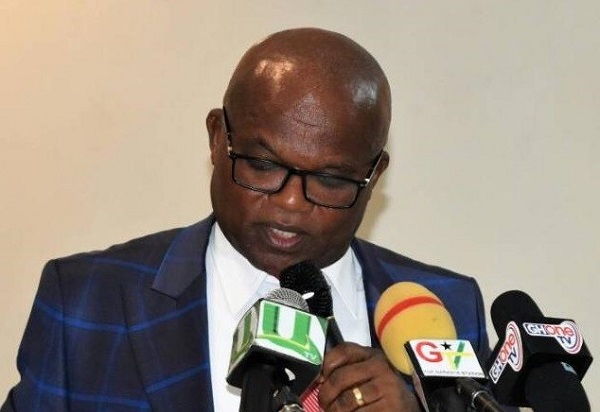
43 MMDAs to implement findings to enhance IGF
Forty-three metropolitan, municipal and district assemblies (MMDAs) across the country are expected to implement research findings into how they can mobilise adequate internally generated funds (IGF) in order to be weaned off government subvention.
If successful, the project will be replicated in the remaining assemblies as a means of building a resilient national revenue mobilisation drive to power development at the local levels.
Advertisement
The research, which was carried out by the London School of Economics’ International Growth Centre (IGC), concluded that the use of revenue management technologies presented an opportunity for MMDAs to increase IGF.
Technology can make a difference
Its analysis suggested that assemblies in the country that used revenue management technologies collected 83 per cent more IGF per resident than those that did not.
The IGC surveyed all 256 assemblies in the country, speaking to 5,300 respondents with 500 questions to get a comprehensive look at IGF capacity in Ghana’s local governments.
“There are clear challenges to raising more IGF in the MMDAs, starting with the lack of official property addresses, which makes it hard for MMDA staff to deliver bills and collect property rates. According to our estimates, just 24 per cent of properties in the average MMDA have an official address,” the survey said.
It also concluded that, “One unambiguous constraint on raising IGF is the lack of technology use by most MMDAs. Less than a third of MMDAs reported using revenue management technologies, including electronic databases of ratepayers and revenue software for billing, collection and enforcement.”
Delivering an address at a dissemination workshop for selected district chief executives, directors and critical staff of assemblies in Accra, the Head of Service at the Office of the Head of the Local Government Service (OHLGS) Nana Ato Arthur, observed that the performance-based nature of Districts Development Facility (DDF) and the Urban Development Grant (UDG) had made the district assemblies common fund the mainstay of the assemblies in terms of development and other expenditure.
Effects of inadequate IGF
That, Nana Dr Arthur said, was in spite of the adequate legal provisions for them to mobilise enough revenue locally, adding that it had created a situation where most of the assemblies had developed a lackadaisical attitude towards alternative source of funding namely the IGF, which could be the magic wand to pay for local development.
He, however, was quick to add that it would be unfair to apply such a scenario to all assemblies, saying “Because as some of the assemblies are not performing in revenue mobilisation, others are doing pretty well. For this reason, best practices could be learned through the survey findings”.
It was against that backdrop, Nana Dr Arthur said, that he made the use of Information and Communications Technology (ICT) in revenue enhancement as one of his six-point vision, and that to operationalise that vision precipitated the research collaboration with the IGC and the OHLGS to come out with evidence-based findings to address the age-long challenge.
He mentioned that it was within that context that the survey had produced concrete findings that might be useful to the assemblies to turn around their fortunes and overcome their respective challenges.
Turnaround
“The turnaround will make the assemblies wean themselves off the central government’s fiscal transfers,” and that “such an achievement without hesitation will make all of us proud”.
In an address read on his behalf, the Deputy Local Government and Rural Development (MLGRD) Minister, Mr O. B. Amoah, said constitutionally, assemblies were mandated to levy and collect taxes, rates, duties and fees while the Local Governance Act 936 of 2016 empowered them to collect revenue from a range of sources to complement the central government transfers and funding from development partners.
He was, therefore, of the view that an important work needed to be done at reversing the situation and to raise national consciousness on the importance of IGF in order to solicit stakeholder support to address the challenges and inefficiencies in the mobilisation and management of IGF in the assemblies.





